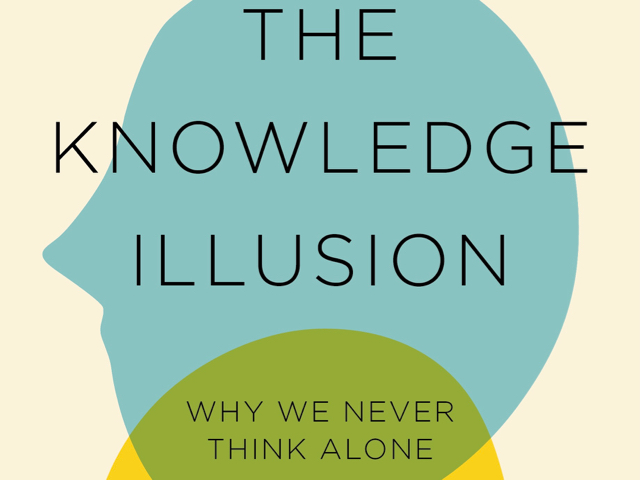
Description
The MIT Press Bookstore presents Steven Sloman, Professor of Cognitive, Linguistic and Psychological Sciences at Brown University, in conversation with Drazen Prelec, Professor of Management Science and Economics at MIT’s Sloan School of Management, discussing Steven Sloman’s new book, The Knowledge Illusion: Why We Never Think Alone, at 6:00 pm on Tuesday, May 9, at the Bookstore. The human mind is both brilliant and pathetic. We have mastered fire, created democratic institutions, stood on the moon, and sequenced our genome. And yet each of us is error prone, sometimes irrational, and often ignorant. In The Knowledge Illusion, cognitive scientists Steven Sloman and Philip Fernbach argue that we survive and thrive despite our mental shortcomings because we live in a rich community of knowledge. The key to our intelligence lies in the people and things around us.
Speaker Bio
Steven Sloman received his B.Sc. from the University of Toronto in 1986 and his Ph.D. in Psychology from Stanford University in 1990. He is a computationally oriented cognitive scientist who studies how people think. He is currently Editor-in-Chief of the journal Cognition. Steve has studied how people categorize the world and the relation between our names for things and our thoughts about things. He has also studied inductive inference, judgments of probability, decision making, and reasoning. Much of his work in recent years has focused on how people reason causally about the world. These interests are reflected in his book, Causal Models: How We Think About the World and Its Alternatives, published by Oxford University Press in 2005. His current focus concerns ignorance and the community of knowledge. The illusion of explanatory depth is the finding that people think they understand how things work better than they in fact do. Steve believes this illusion of understanding emerges because people fail to distinguish what others know from what they themselves know. They think they understand more than they do because they confuse other people’s knowledge for their own. Such confusion arises because much of what we know doesn’t reside in heads. Rather, it resides in the community of knowledge that we participate in. These ideas are spelled out in a popular book written with Steve’s ex-student Phil Fernbach: The Knowledge Illusion: Why We Never Think Alone (Riverhead Press, 2017).
Prelec has been a member of the MIT faculty since 1991, and presently holds appointments in the Sloan School, the Economics Department, and the Department of Brain and Cognitive Sciences. He received his Ph. D in experimental psychology and AB in applied mathematics from Harvard University. He was a Junior Fellow in the Harvard Society of Fellows, and has received a number of distinguished research awards, including the John Simon Guggenheim Fellowship.

